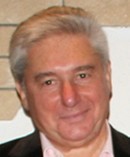

Plenary Lecture
Universe Simulators Based on the Variability of Linear and Time Measurement Standards

Professor Vitaly O. Groppen
Scientific-Research Institute of Applied and Theoretical Informatics
North-Caucasian Institute of Mining and Metallurgy
Vladikavkaz, Russia
E-mail: groppen@mail.ru
Abstract: The proposed approach is based on the combination of differential equations reflecting linear and time measurement standards variability and of the Hubble Law used for new Universe simulators development, permitting us on the one hand to predict some important features of the Universe, such as spontaneous growth of distance between two resting objects detected by an observer at one of these objects, and on the other hand giving us new interpretation of known facts, such as galaxies scatter and acceleration, constancy of any solid body linear dimensions in time and so on.
Brief Biography of the Speaker: Vitaly Groppen graduated from the North-Caucasian Institute of Mining and Metallurgy, Russia in 1967. In the 1960s he worked as an Assistant Professor at the Department of Industrial Electronics in the North-Caucasian Institute of Mining and Metallurgy, Vladikavkaz, North Ossetia, Russia. In 1973 he graduated from postgraduate courses in the Institute of Control Science of the Russian Academy of Sciences (Moscow, 1970 – 1973) and worked as the Head of Computing Centre of North-Caucasian Institute of Mining and Metallurgy (1973 – 1980) and as an assistant (1973 – 1976) and as Associate Professor (1976 -1988) at the Department of Mathematics in the same institution. In the 1980s he continued his research as a Senior Specialist of the Data Processing Department in the Dresden Technical University (German Democratic Republic, Dresden, 1980), and in the Leipzig Technical Higher School (German Democratic Republic, Leipzig, 1985). Since 1987 until 1989 he is a Professor and the Head of the Department of Mathematics in the North-Caucasian Institute of Mining and Metallurgy, North Ossetia, Russia, but from 1989 until now – founder and head of the Automated Data Processing Department in the same Institution. In the 1990s he was a visiting Lecturer in the Catalonia Technical University (Barcelona, Spain, 1990) and in the LG Research Centre (Seoul, Republic Korea, 1995). Since 1999 he is member of European Mathematical Society and since 2008 he is the Director of the Scientific-Research Institute of Applied and Theoretical Informatics (Vladikavkaz, North Ossetia, Russia). His research interests are focused on mathematical modeling, astronomy, physics, optimization theory and its’ applications, graphs theory, discrete programming, theory of games, taxonomy, solutions making theory, computer aided images processing, optimal program codes design. He is the author of about 120 papers, 5 patents and 7 monographs.